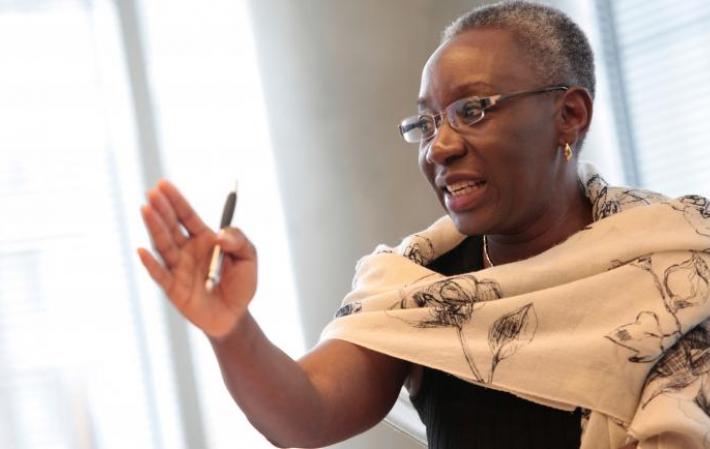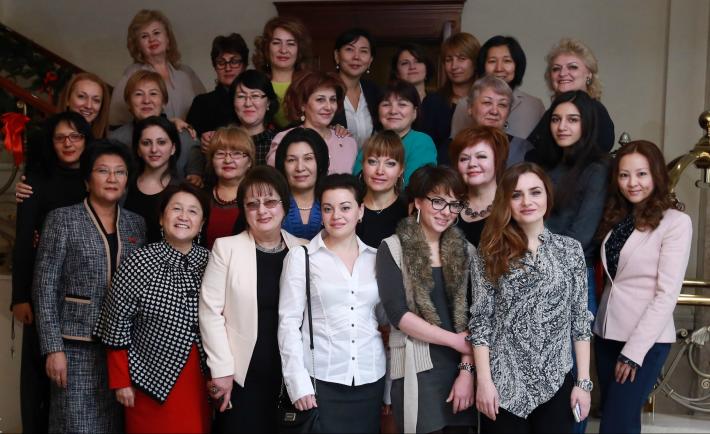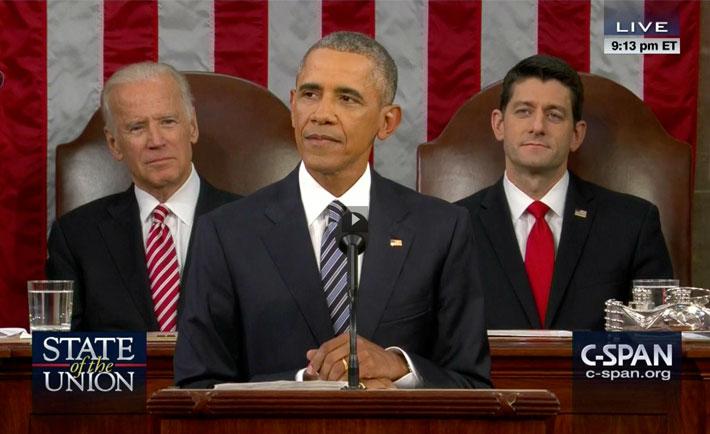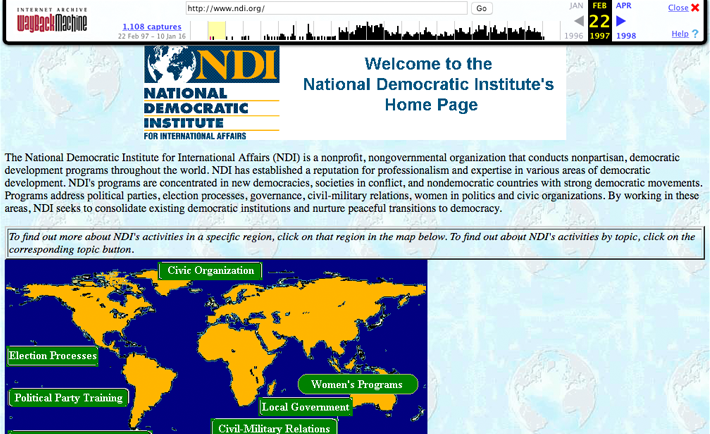
Sandra Pepera, Senior Associate and Director for NDI's Gender, Women and Democracy team.
As we celebrate International Women’s Day today and the progress that women around the world have made, we must also commit to efforts that will overcome the significant obstacles that still stand in their way. This year, the National Democratic Institute is launching a campaign to stop violence against women in politics. Physical and psychological violence is real and has long-lasting consequences. Often women are told that such violence is “just the cost of politics.”
First off, happy Open Data Day. To celebrate this day of data liberation, we at NDI’s Open Election Data Initiative invite you to to participate in our Election Iconathon event on Saturday, March 19th where we will create icons that bring election data to life. Slots are filling up fast, so we encourage you to sign-up before they’re all gone. Throughout our work we've found that images, often through infographics, can tell memorable stories about elections. So we'd like to invite you to help us create icons that will do justice to the data our election monitoring partners collect and publish.

Over the course of 2016, a total of 32 countries in Africa will hold elections from local to presidential (view interactive map). Map is based on U.N.-defined boundaries. Credit: NDI CC BY-NC
Africa is home to a wealth of political diversity and regime types. In 2015, elections brought about the first peaceful transfer of power to Africa’s most populated country, Nigeria, but also led to mass civil unrest and instability in Burundi. Over the course of 2016, 32 countries on the continent will hold elections from local to presidential. However, the context of each election varies not only in political landscape, but also in the strength of democratic institutions and norms embodied within each country’s political system. In countries like Ghana, political actors will compete in a fierce struggle of wooing enough voters amid an increasingly critical public. In Uganda, the competition will center upon establishing the rules of the electoral game, as a long-time ruler works to tilt the playing field in his favor. Understanding the political background of each election allows for a richer narrative in the journey toward democratic consolidation.
We here at the Open Election Data Initiative noticed yesterday that the Election Commission of Uganda made voter registration information available for free at a granular level. Naturally, we were excited to see those two open data principles at work. The Election Commission published a file with the number of registered voters for each polling station along with the number of females and males registered at each station. The problem: they posted it as a dreaded PDF file, which is not an analyzable format.

Armenian, Kazakh, and Kyrgyz women activists gathered to learn about holding governments accountable for the impact of laws and policies on women in particular.
This December, women activists from Armenia, Kazakhstan and Kyrgyzstan came together for a four-day gender responsive budgeting (GRB) workshop sponsored by NDI to begin wrestling with this problem. More than 30 participants gathered in Bishkek, Kyrgyzstan to discuss the theory and practice of GRB, and to jointly develop GRB programs for implementation in their own countries.
Political parties are essential for democracy, they offer citizens meaningful choices and opportunities to mobilize behind different visions for their society. However, around the globe political parties are consistently ranked among the least trusted democratic institutions. While there are many reasons for this distrust, it does have some people wrongly asking if political parties are still necessary in today’s changing technological environment or if they’re a dying species of the 20th century. However, parties remain the only institutions that offer citizens meaningful choices in governance, avenues for political participation and opportunities to shape their country’s future. They therefore remain fundamental to the healthy functioning of democratic systems. To address this disconnect between citizens and political parties, NDI's Political Parties team has launched this Party Renewal Initiative to discuss how parties can better adapt to the 21st century.

A representative of civil society raises a question during the panel discussion held by Election Observation Coordination Group (EOCG) members in Nepal. Credit: Sr. Program Assistant Neha Shreshta/ NDI
Each week NDI’s Citizen Participation team provides a resource to assist NDI staff in meeting the objectives of their programs. This past month’s resources analyzed how citizens can counter corruption through nonviolent action, how to build a coalition in order to launch a successful campaign, social auditing to increase government accountability, and the debates and challenges of disability inclusion in development.

Caption: President Barack Obama, flanked by Vice President Joe Biden (left) and House Speaker Paul Ryan (right), delivers his eighth and final State of the Union (SOTU) address. In addition to listing his policy goals and accomplishments, the President provided a counter-narrative to hyperbolic election-year rhetoric and a reminder of the strength and resiliency of America’s democratic political system.
As a politics nerd, there was no question that I would spend Tuesday night on my couch, listening to the State of the Union (SOTU) address. As someone who has made a career in democracy assistance, the speech held even greater significance: it was an example of democracy in progress.

This Wayback Machine screenshot shows NDI’s original website from February 22, 1997. We’ve come a long way! Click here to explore the evolution of NDI’s website.
NDI launched a project to redesign its website this week. The redesign presents an exciting opportunity to put a fresh face on NDI's work, while preserving the depth of content that makes NDI.org such a valuable resource. In keeping with NDI's values and in the interest of meeting your needs, we hope to make this process as open and inclusive as possible...but we need your help!
Thank you for coming along on NDI’s journey into blogging. Since the DemWorks blog launched in February 2015, we have published over 100 posts and reached 57,000 users in 177 countries around the world. More than 400 of you were gracious enough to let us into your email inboxes through the new subscription feature, which was launched in October. While NDI is not a media organization, we have the world’s deepest pool of democracy experts. We hope you have enjoyed hearing our insights and will join us again in 2016. Please subscribe! Without further ado, here’s my list of the top blog posts from 2015.